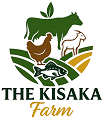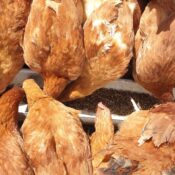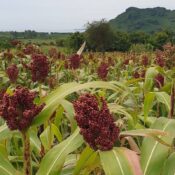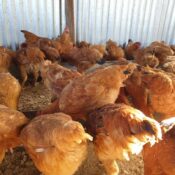
Reasons to buy organic. Benefits of Organic.
In a world where fast-paced living and convenience often overshadow health and sustainability, more and more people are beginning to ask a very important question: “What’s in my food?” At Kisaka Farm, located near the shores of Lake Victoria in Homa Bay County, Kenya, we believe that food should be pure, nourishing, and responsibly grown. That’s why we’ve chosen to embrace organic farming—a path that not only feeds people better but also protects the environment, respects animals, and supports rural communities.
If you’ve ever wondered why buying organic really matters, here are some key reasons and benefits that will give you a new appreciation for every organic tomato, leafy green, chicken, or goat you choose to consume.
1. Free from Harmful Chemicals
Conventional farming relies heavily on synthetic pesticides, herbicides, and chemical fertilizers to boost production and ward off pests. While these substances may increase yield in the short term, they come at a serious cost to human health and the environment. Pesticide residues can remain on food, find their way into the soil and water, and harm beneficial insects, birds, and even livestock.
At Kisaka Farm, we say no to chemicals. Our vegetables—like sukuma wiki (kale), terere (amaranth), managu (African nightshade), tomatoes, onions, and green peppers—are grown using organic compost, natural pest repellents, and sustainable soil health practices. This means the food that reaches your plate is clean, safe, and free from toxins.
2. Better Taste and Nutrition
One of the most common things people notice about organic food is that it just tastes better. And it's not just a feeling—studies have shown that organically grown produce tends to have higher nutrient content, particularly in terms of antioxidants, vitamins, and minerals.
Because we nurture our soil naturally, our plants grow stronger and healthier, producing richer, more flavourful food. Whether it’s the deep, earthy flavor of our leafy greens or the juiciness of our vine-ripened tomatoes, you can taste the difference that comes from farming the right way.
3. Kind to the Environment
Organic farming is designed to work in harmony with nature. At Kisaka Farm, we follow practices that promote biodiversity, build healthy soil, conserve water, and reduce pollution. These practices help restore the land instead of depleting it—something that’s especially important in regions like ours that are vulnerable to the effects of climate change.
From composting organic waste to rotating crops and practicing minimal tillage, we actively reduce our carbon footprint and support the natural systems that keep our farm, and the planet, thriving.
4. Supports Animal Welfare
Organic isn’t just about plants—it extends to the animals too. Our kienyeji chickens and gala goats are raised humanely, given enough space to roam, and fed naturally. We avoid growth hormones, antibiotics, and cramped enclosures that are common in factory farming systems.
When animals are treated with respect and allowed to live in natural conditions, they’re not only healthier but also produce better meat and eggs. Consumers can feel confident that the animal products they buy from Kisaka Farm come from a place of care and ethical treatment.
5. Protects Future Generations
The decisions we make today about how we grow food will have lasting effects on the health of our children, the fertility of our soil, and the quality of our water. By supporting organic farming now, you’re investing in a safer, healthier, and more sustainable world for future generations.
Children, in particular, are more sensitive to pesticide residues and chemical exposure. Feeding them clean, organic produce from a young age can help protect their development and overall wellbeing.
6. Builds Stronger Local Economies
Buying organic from local farms like Kisaka Farm supports community-based agriculture. It keeps money in the local economy, creates jobs, and helps build a stronger connection between farmers and consumers. Instead of large agribusinesses controlling our food system, organic farming empowers smaller farmers and promotes food sovereignty.
When you buy from Kisaka Farm, you’re not just buying vegetables or livestock—you’re supporting a vision of agriculture that puts people and the planet first.
7. Safer for Farm Workers
Exposure to chemical pesticides and fertilizers is a major health risk for farm workers. Many conventional farm workers around the world suffer from skin disorders, respiratory issues, and other health conditions caused by regular exposure to these harmful substances.
At Kisaka Farm, our organic practices create a healthier, safer working environment for everyone involved—from seed to harvest. It’s farming that respects not just the end consumer, but the people who make food production possible.
8. Reduces Food Miles and Promotes Freshness
Because we supply directly to local retailers, institutions, and consumers, our produce doesn’t travel thousands of kilometers before it reaches your kitchen. Shorter supply chains mean less fuel used, fewer emissions, and fresher food. When you buy from Kisaka Farm, you’re supporting a model that values local ecosystems and reduces unnecessary waste.
Choose Organic. Choose Kisaka Farm.
At Kisaka Farm, we believe that good food should be clean, ethical, and sustainable. Choosing organic isn’t just a lifestyle choice—it’s a commitment to your health, your environment, and your community.
Whether you’re an individual looking for nutritious, fresh produce or a retailer or hotel seeking bulk organic supply, we invite you to experience the Kisaka difference.
Together, let’s grow a healthier future—one farm-fresh bite at a time.
Recent Posts
From Soil to Soul: Discover the Organic Goodness of The Kisaka Farm
Could Organic farming help solve the climate crisis?
+254 700 433 877
info@kisakafarm.com



